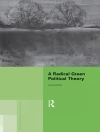In ‘Conflict of Northern and Southern Theories of Man and Society, ‘ Henry Ward Beecher explores the profound ideological schism between the Northern and Southern United States leading up to the Civil War. Through eloquent prose and sharp rhetoric, Beecher articulates the divergent views on society, governance, and human dignity that shaped the American identity during this tumultuous period. The work is marked by its rich historical context and persuasive argumentation, drawing on religious, philosophical, and social paradigms to assess how these conflicting perspectives contributed to the national crisis. Henry Ward Beecher, a prominent preacher, social reformer, and abolitionist, was deeply entrenched in the cultural conflicts of his time. His personal experiences and moral convictions, particularly regarding slavery and human rights, inform much of this text. Beecher’s background and influential role in the abolitionist movement provide him with a unique lens to interrogate the societal divisions that would lead to one of the nation’s bloodiest conflicts. This book is highly recommended for readers interested in American history, sociology, and political theory. Beecher’s insightful examination not only sheds light on the historical context of the conflict but also invites readers to reflect on the enduring themes of freedom, equality, and societal structure that resonate through American society today.
Про автора
Henry Ward Beecher (1813–1887) was a prominent 19th century American clergyman, social reformer, and speaker, renowned for his fervent abolitionist views and eloquence in the pulpit. The brother of author Harriet Beecher Stowe, Henry was born in Litchfield, Connecticut, and raised in a household steeped in religious and social activism. Educated at Amherst College and Lane Theological Seminary, Beecher went on to serve as a Presbyterian minister, most notably at Plymouth Church in Brooklyn, New York, which became a platform for his vehement anti-slavery campaigning. Beecher’s literary contributions were extensive and often interwoven with his social concerns. A key work, ‘Conflict of Northern and Southern Theories of Man and Society’ represents his deep engagement with the moral and political issues of his day, particularly the irreconcilable differences between Northern and Southern attitudes toward slavery and human rights. His style was characterized by a potent combination of religious morality and advocacy for social justice, assembling a legacy of oratory and writing that has since been studied extensively for both its rhetorical prowess and ideological conviction. Beecher’s influence reached beyond the pulpit, impacting American politics and helping to shape the nation’s discourse on freedom and equality.












